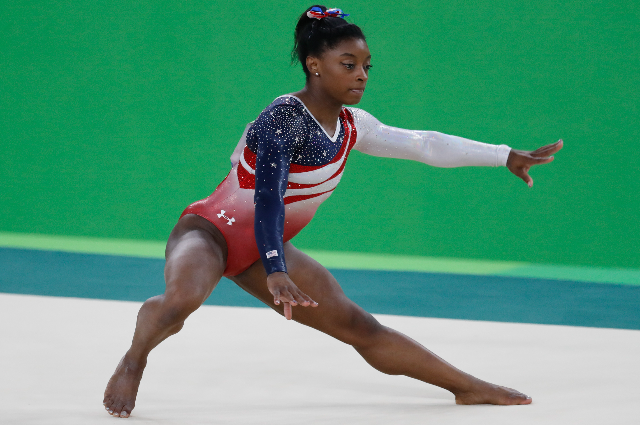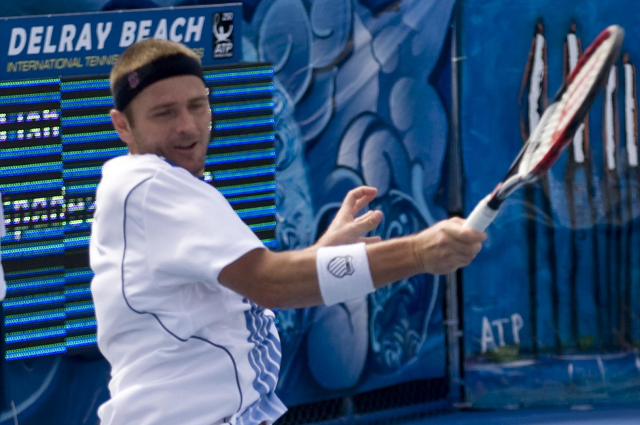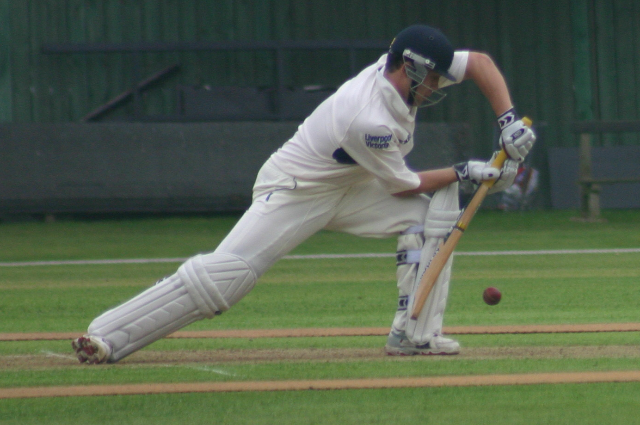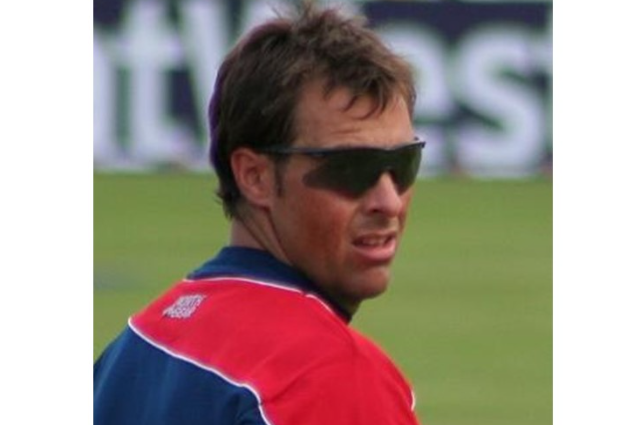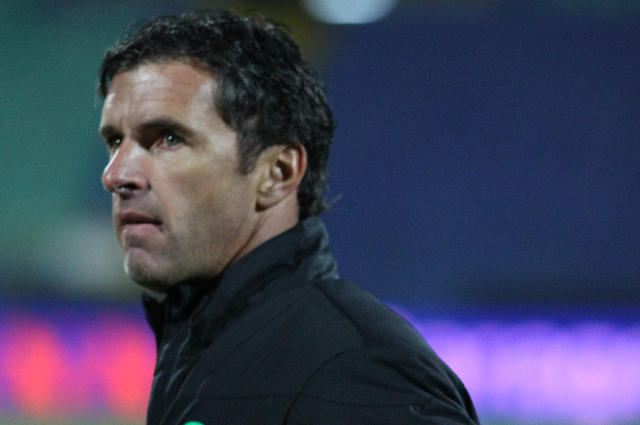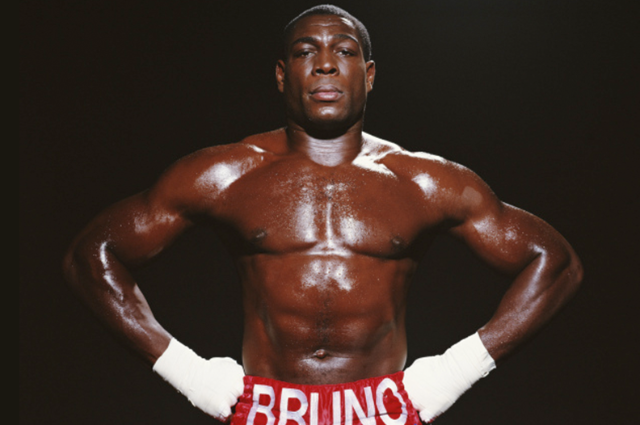Introduction
From the time immemorial, sporting activities have played a pivotal role in digressing the mind from the humdrum and listless endeavours of the daily life of ordinary people. Probably, this was the primary and most important role of sports in their life. However, with the growth of human civilizations, healthy competition started amongst the people to prove one's prowess and superiority in the sporting arena. First, these took place within the contours of the countries themselves. But later, such sporting events crossed the national boundaries. The oldest sporting event comprising more than one event and involving many countries in the past history has been the Olympic games which started in Athens in Greece in 1896. The International Olympic Committee was founded in 1894 by the French pedagogue and historian with the aim of promoting international understanding through sporting competition. In the inaugural games at Athens, just 245 competitors from only 14 countries participated. Out of these, more than 200 participants were Greek. The Olympics became the face of sports in modern times with the inclusion of many sporting activities and the participation of a large number of countries worldwide. In due course of time, more sporting events of global nature such as the World Cup, World Championship, Asian Games, Pan-African Games, European Championship, etc. came into being giving rise to a breed of professional sportspersons.
Now, the nature of sports has taken a turn from enjoyment to professional pursuit. Moreover, the sportsmen participate in these big events not as an individual but at the same time, they represent their respective countries also. This culminated in the national prestige issues and the countries, especially the superpowers started to look upon these games as an opportunity to showcase their sporting prowess over their rivals, and additionally, to the whole world. Such a stance adopted by the countries put tremendous mental pressure on the sportsmen in general for whom winning became the only way to survive in the world of sports. This pressure grew, slowly but surely, affecting the mental health of the players. However, they were in a dilemma in regard to expressing their travails publicly. If they speak up, there is every possibility that their statement might be taken in a bad light by the sports administrators of their respective countries for whom an increase in the medal tally was the only pursuit, simply because it was proportional to the increase in the national prestige. On the other hand, mental pressures on the sportsmen were taking their toll which gradually became unbearable. Besides that, individual players' overriding ambition for prestige and monetary gains also added fuel to the fire. This predicament survived for a long amongst the sporting fraternity.
At last, the bubble of mental inertia was burst by the Japanese tennis player, Naomi Osaka, last year followed by the world's greatest gymnast, Simon Biles of the USA during the Tokyo Olympic Games of 2020. Their actions and subsequent statements shook the world by the enormity of the prevailing situation amongst the sportspersons of the world. It has started a debate world over regarding the basic nature of sports-a stress reliever or a provider of stress. Before discussing the issue further, it would be fruitful to peep into the history of such sportspersons who have experienced the trauma of big expectations while performing at international levels. The list is as such:
1. Naomi Osaka:
She is one of the most vocal advocates of mental health among athletes. In the prestigious tennis tournament, the French Open in 2020, she refused to attend the press conference because of the mental stress they levied on her and was fined for not doing so. She later pulled out of the tournament. Following a brief return to tennis, she cut her season short after the US Open, saying that "winning did not make her happy anymore." Naomi Osaka, however, has moved ahead in a positive direction. After the recent loss in the third round of the Australian Open, she expressed her feelings as such:
"I'm not God! I can't win every match. The last match that I played in New York I think I had a completely different attitude... Of course, I lost, but I'm happy with how it went. I just want to go into this year knowing that I'll play the whole year and I'll just have the greatest attitude ever."
A very positive sign, indeed from a great sports personality that holds promise for other athletes also in the future.
2. Simone Biles:
The 24-year-old renowned US gymnast, the face of the US gymnast team and greatest gymnast of all time, made a call to withdraw from the final all-round competition at the Tokyo Olympic Games on 27th July 2021. It was a choice she made on account of her own mental health. In a latter conference post-exit, she explained her action in the following words:
"It's been really stressful these Olympic games...it's been a long week, a long Olympic process, a long year. I think we're a little too stressed out-we should be out here having fun and that's just not the case."
Biles cited Naomi Osaka as an inspiration and stated
"We also have to focus on ourselves because, at the end of the day, we're human too. We have to protect our mind and our body rather than just go out there and do what the world wants us to do."That highlights the crux of the problem.
3. Mardy Fish:
A US Davis Cup captain and ex-top 10 player was one of the first star athletes to open up on his mental issues and struggles. He was tipped to be the next big thing in tennis after turning professional at the age of 18. He was the top-ranked American for a brief period and reached the final of the 2004 Athens Olympics. He entered the top 10 for the first time in 2011 at the age of 30. But he suffered severe cardiac arrhythmia in the midst of the 2012 French Open. It was then that he was diagnosed with a severe anxiety disorder. Even though he returned to tennis shortly, the pressure at the US Open proved too much for him. He withdrew from his fourth-round match against Roger Federer just moments before it was supposed to begin. He has been a sounding board and advocate for mental health, using his personal experiences to remind people how to prioritize their health and minimize the risk of burnout, for many, including Naomi Osaka, and is a mentor-on-call at US Open.
4. Jonathan Trott:
He was a member of the English Cricket team whose sudden withdrawal from the team sprang a surprise in 2013. His decision to take a break from cricket after suffering from a stress-related illness had highlighted an important and often misunderstood issue in sport. Mental illnesses such as stress and depression can affect the sportspersons in various ways.
5. Luke Sutton:
He was a former Derbyshire and Lancashire cricketer, director of Activate Sport and non-executive director of Thomas Eggar's sport and leisure team, spoke in the past about his experience of mental health issues during his career: "I have first-hand experience of battling with mental health issues as a professional cricketer and, in the end, it forced my retirement from the game". He further stated that "The toughest aspect of it was actually admitting that I needed help. I was a leader (captain of the club), owned my own business, and saw myself as a strong person. Suddenly I wasn't being able to cope and it was very confusing and lonely. I put my hand up and say I was struggling? I would be seen as weak by teammates, opposition, media and the public; so I said nothing. In the end I let things deteriorate to such an extent that it reached a complete breaking point. Mental health is still misunderstood by many, and it is important that we speak to raise greater awareness so that someone else down the line doesn't take as long to ask for help". This statement of Luke Sutton is self-explanatory and highlights the malaise of mental stress in no uncertain terms.
6. Marcus Trescothick:
This English test cricketer was forced to retire from international cricket in 2006 because of a stress-related illness.
7. Gary Speed:
A well-known footballer committed suicide at 43 after apparently battling depression for years.
8. Frank Bruno:
Boxer Bruno had to cut short his budding career of international boxing due to his suffering from severe depression.
9. Sam Mikulak:
US Olympic gymnast, who finished 12th in the all-around final, has recently acknowledged his own mental health struggles publicly by stating: Everyone wants athletes to be indestructible and perfect all time. Sometimes it's too much. And when that is the case, you have to do what is best for you.
10. Erica Sullivan:
US swimmer, who won the silver medal for the 1500 m freestyle, opened about her own struggles in a news conference. She said: "I'm not facing a fraction of the pressure that Simone is. But there was a time in 2018 when I started getting psychological help for my issues, and there was a time when it was so bad that my coach told me I can't keep racing like this and I will not be racing until I get better.”
11. Morgan Stickney:
US Olympian swimmer has candidly spoken about the problem of mental health in the recent past as such: "People don't like to talk about mental health because it can be seen as a weakness, but I think it's so important to express your feelings and emotions, especially in sport. We will train so hard, but it comes down to the mental aspects". That is, perhaps the harsh reality.
12. Regina Salmons:
The US Olympic rower has echoed similar sentiments by stating: "I've yet to meet a single professional or elite athlete who doesn't have bad days or doesn't have a hard time with mental health at one point or another. Just like getting sore from weights or being injured, your mental health gets broken down and gets built back up too". This is, sadly, true.14
13. Nyjah Huston:
He is a Skateboarder who was placed 7th in the Olympic event. He recently talked of the challenges and pressures faced by him, like his peers of being an 'internationally-medal winning athlete'. On Instagram, he also shared that 'he often struggles to treat sport as a sport and feels bad if he doesn't win all the time.'15
Extent of mental stress in sports
Contrary to the popular perception, sports do not make athletes immune to mental health challenges. There is always pressure to perform in the game, as well as in the rest of their lives. Student-athletes have additional pressure to maintain their classwork and grades on top of practice and games. According to statistics, in the USA, 33% of young adults, especially college athletes, experience significant symptoms of depression, anxiety, or other mental health conditions. Among that group, 30% seek help. But of college athletes with mental health conditions, only 10% do. Among professional athletes, data shows that up to 35% of elite athletes suffer from a mental health crisis which may manifest as stress, eating disorders, burnout, or depression and anxiety.16
In the case of the prevalence of mental health disorders in elite athletes, the situation varies from sport to sport. For example, in male athletes from team sports such as cricket, football, handball, ice hockey and rugby, the prevalence of mental health symptoms and disorders varies from 5% for burnout and adverse alcohol use to almost 45% for anxiety and depression (Reardon et al ref). Mental health disorders occur in 5%-35% of elite athletes over a follow-up period of 12 months as reported in prospective studies (Reardon et al ref). In female athletes, mental health disorders-especially eating disorders-are prevalent (Reardon et al). The prevalence of mental health disorders in collegiate athletes ranges from 10% - 25% for depression and eating disorders (Reardon et al). Among French elite athletes, a 6-month prevalence rate of 6% was reported for generalised anxiety disorders. As per the studies conducted on elite athletes in the UK, a prevalence of 47.8% for anxiety/depression and 26.8% for signs of distress has been reported. Research on the mental health of Australian athletes documented a prevalence of 46.4% of athletes experiencing symptoms of at least one of the mental health disorders assessed. The results of this study were similar to other epidemiological studies on the mental health of elite athletes with 27% of athletes experiencing symptoms of depression, 22.8% showing symptoms of eating disorders, 16.5% experiencing general psychological distress, 14.7% showing signs of social anxiety and 7.1% of athletes showing signs of generalised anxiety disorders. Furthermore, injured athletes displayed higher levels of both depression and generalised anxiety disorders. Hammond et al (2013) reported that depression in elite athletes has been underestimated, with 68% of Canadian international swimmers having major depression episodes prior to competition, while 34% met the same diagnostic criteria post-competition. From these studies, it is evident that athletes are confronted with various stressors and do show signs and symptoms, as well as suffer from mental health disorders.17
The probable causes of mental stress among the sportspersons
"Psychological stress is defined as a relationship between person and environment that taxes their resources and endangers their wellbeing."
18 In the field of sports, especially professional sport, there are multiple causes for generating mental stress. More important among them can be summarised as such:
- Competition from other players resulting in worry that a team/individual place may be lost to someone else in case of not being the best;
- Pressure from the bosses belonging to corresponding sports associations;
- Long tours away from home;
- A need to balance home life with work life;
- Fans' growing expectations;
- Big game stress;
- Pressure from the self-generated perfectionist approach;
- Round-the-clock media attention;
- Ever-increasing commerciality of sport;
- Feeling of lack of acceptance by the coloured athletes by their white counterparts.
The list is yet not exhaustive. There can be other reasons also.
Potentially harmful effects of mental stress:
- Aggression in the behaviour of the athletes;
- Disturbed sleep;
- Engagement in risky behaviour such as drinking and drug-taking;
- Absenteeism;
- Poor performance on the field;
- Prolonged stress can cause significant health risks, including bowel problems, skin disorders, heart attacks, sexual dysfunction, and even lead to suicide.
Professional sportspersons generally suffer longer than others on account of stress because they are less likely to seek help. The instant fear of being dropped from the team and also of being ridiculed by their teammates and the sports administrators are the prime reasons. Facing mental health challenges becomes more complicated by the prevailing stigma in elite sports around shared feelings. According to a review of 13,000 elite athletes across 71 sports, multiple factors are to blame for a lack of mental health care. Across 52 included studies, stigma was the primary deterrent to elite athletes as to why they didn't seek help for mental health issues. Besides that, a lack of mental health literacy, previous negative experiences when seeking help, and busy schedules were additional barriers named.19
The Indian scenario
Barring a few sports like hockey, cricket, badminton, wrestling, or boxing, India's international presence is just for the namesake. Even in these sports, the success has been sporadic. However, the pressure of success always hovers in the minds of Indian athletes. There is a lesser number of elite athletes in our country than in Europe and America. But still, the malaise of mental stress is affecting the Indian sportspersons as well. India's ace badminton player and coach, Pulela Gopichand, has well-articulated the problem in an article recently published in The Indian Express in clear terms: "Currently, all our energies in India remain focussed on the elite 5 percent, who fit into the existing definition of success without having any clear off-ramp or slip roads to get off the elevated sports freeway for the majority of the 95 percent who take up sport and are categorised as failures-often, unfairly so". He further summarises his approach in no uncertain terms: "The belief that unless you are winning, you are not a champion is a fallacy. The very fact of participating in sport makes you a champion and it's time to recognise that."
What he has emphasized here is the fact that winning should not be the sole criteria for judging a sportsperson. Rather his spirited efforts for achieving the goal should be lauded. That is the lesson for all, including the public, sports administrators, fans, and the media. This approach, if adopted, will go a long way in mitigating the nagging problem of mental health in the life of any sportsperson. It can be reasserted here that the causes for mental stress are more or less the same for Indian athletes as persist in the international arena.
Strategies for stress management
Currently, there is no comprehensive framework or model of care to support and respond to the mental health needs of athletes including elite athletes. Stress management in sport encompasses environmental, physiological, cognitive, and behavioural techniques employed by an individual to manage the factors and components that underlie the stress process or experience of stress. Its primary goal is to allow the athlete to effectively regulate competition-related demands to facilitate optimal performance as well as to enhance psychological wellbeing.21 There is no denying the fact that there are several models prevailing in the international sports arena, but proper and uniform thinking in this regard is completely missing. That is why the expected results are eluding the athletes worldwide.
Conclusion
Sports play a very important role in human life. It instantly offers an opportunity to bring us joy. At the same time, it is considered to be an effective stress-buster. However, with the commercialization of sports, the element of winning has gained ascendency over other good things in sports. Moreover, in international sporting events like the Olympics, World Cup, or any other World Championship, the mental pressure to win medals for their countries wreak havoc on the athletes’ mental health. Things become worse when the national sporting bodies, instead of caring for the athletes' worries, continuously rebuff them for not performing up to the mark. This is no wonder that so many players the world over has succumbed to adverse situations in their personal life, including suicides also. The harsh reality is that till recently, sportspersons were hesitant to open up on this grave issue of mental health. There is an urgent need to reform the prevailing view of judging athletes on the basis of wins only. It is required from all sections, including the public, sports authorities, international sports organizations, and the media. Sports are a means to achieve happiness. It should not be seen as a means to project one's superiority over the rivals on the field. Meanwhile, uniform sports stress management techniques should be innovated in order to cope with the situation prevailing in the sports world. Sportspersons should also shed their inhibitions and open up showing their pent-up frustrations in the interests of sports itself. Time is ripe for all associated with the sports to take up the call in right earnest. A silver lining, however, has started to appear on the horizon. The brave actions of star athletes like Naomi Osaka and Simone Biles are the steps in the right direction which will bear fruit in the future for the betterment of the athletes' world over.
. . .
References:
- Shyam Kamal, Naomi Osaka reacts to Mardy Fish's mental health struggles, says his documentary is a "great" watch, Sportskeeda, Jan 7, 2021, available at https://www.sportskeeda.com/tennis/news-naomi-osaka-reacts-mardy-fish-s-mental-health-struggles, accessed on 13.1.2022.
- Reuters, The Indian Express, 22.1.2022.
- The Times of India, "Athletes are human too": Why Simon Biles's withdrawal from Olympics rightly highlights the need for mental health awareness in every field, available at https://m.timesofindiacom/life-style/health-fitness/de-stress/athletes-are-human-too-why-simon-biles-withdrawl-from-olympics-rightly-highlights-the-need-for-mental-health-awarenes-in-every-field/amp_articleshow/84826873.cms, accessed on 14.1.2022.
- NBC Olympics, As Biles steps back, more athletes speak up about stress and mental health, Jul 28, 2021, available at https://www.nbcolympics.com/news/biles-steps-back-more-athletes-speak-about-stress-and-mental-health, accessed on 13.1.2022.
- Naomi Osaka reacts to Mardy Fish's mental health struggles, says his documentary is a 'great' watch, Sportskeeda, available at https://www.sportskeeda.com/tennis/news-naomi-osaka-reacts-mardy-fish-s-mental-health-struggles, accessed on 13.1.2022.
- Michael Long, Stress in sport-is enough being done to help athletes?,
- December 2013, available at https://www.sportspromedia.com/opinions/stress_in_sport_is_enough_being_done_to_help_athletes/, accessed on 13.1.2022
- Ibid.
- Ibid.
- Ibid.
- Ibid.
- NBC Olympics, As Biles steps back, more athletes speak up about stress and mental health, Jul 28,2021, available at https://www.nbcolympics.com/news/biles-steps-back-more-athletes-speak-about-stress-and-mental-health, accessed on 13.1.2022.
- Ibid.
- Sarah Fielding, Facing Mental Health Challenges as an Olympian Athlete, July 21, 2021, available at https://www.verywellmind.com/facing-mental-health-challenges-as-an-olympic-athlete-5192965, accessed on 14.1.2022.
- Ibid.
- Supra at f.n.3.
- Mental Health and Athletes-Athletes for Hope, available at https://www.athletesforhope.org/2019/05/mental-health-and-athletes/, accessed on 14.1.2022.
- Mental Health of Elite Athletes-Physiopedia, available at https://www.physio-pedia.com/Mental Health of Elite Athletes, accessed on 14.1.2022.
- Supra at f.n.6.
- Supra at f.n.13.
- Pulela Gopichand, They, too, are champions, The Indian Express, December 24,2021.
- Stress Management in Sport, available at http://psychology.iresearchnet.com/sports-psychology/psychological-skills/stress-management-in-sport/, accessed on 14.1.2022.


